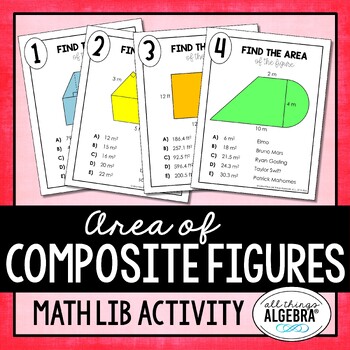I got some inspiration while reading the post on board games, because something that can also be used in the classroom as examples of using mathematic skills are game shows.
Let's see:
.jpg) The Price is Right
The Price is Right - there are many different mini-games in the price is right that involves probability, estimating, pricing items out, and logical reasoning out a problem.
Deal or No Deal - probability at it's finest. You could go through the whole game and simulate how probability changes (increases) as you eliminate each briefcase.
Wheel of Fortune - what is the letter that is most likely to make you money? what are some strategies to approaching each category/words being guessed? Look at the wheel, what is the probability of landing on bankrupt or $1 Million? And, considering the final spin, where they give you the 5 most common letters (RSTLNE)
Who Wants to Be a Millionaire - multiple choice questions - talking about probabilities
Bingo / Lottery - although maybe not age appropriate for younger kids (since they can't gamble) they have all probably played it before
 Lingo
Lingo - Lingo features two teams of two contestants who are given the first letter of a five-letter mystery word and five chances to identify it correctly. The team with the highest number of points earns the chance to correctly identify as many words as they can in two minutes (where in this picture: Red means the letter is correct, a yellow ball means that the letter is beside where they had placed it, and blue means wrong)
Shall we go a little bit older?
Let's Make a Deal - the infamous Monty Hall problem (which has already been discussed in this class)
Press Your Luck (also known as Whammy!) - where contestants collect "spins" by answering trivia, and then spin on the electronic board to win prizes or money, or could land on a whammy and lose everything. Three whammy's and you're out of the game (if I remember correctly)
 Family Feud
Family Feud (although this is still one of the most popular game shows still around, I put it in the older category because of it's roots with Richard Dawson as its host) - the show surveys 100 people with questions and reports its findings - families battle to answer questions for points, and the final round has two people from one family answering questions and giving the best possible answer within 60 seconds (2nd person cannot repeat).
 Card Sharks -
Card Sharks - using one deck of card, contestants decide if the next card is higher or lower (there's more to it, but that would be the probability aspect of it!)
Match Game - A panel of celebrities would answer a "fill in the blank" statement and a contestant would fill it in, hoping that celebrities might have used the same answer. For each match, one point was earned. In the second round, only those that did not match in the first round would answer (therefore, someone who was behind in the first round could catch up). Winner went on to the final round.
And many more....
So while some of these are more trivia related, you can bring in the concept of mathematics through the chances participants have in actually winning and different stages of the different games. I have always been infatuated with games shows (especially GSN) and whenever I got the chance (cable at the cottage and at my father's house included the channel GSN!!!!), I would be sitting there enjoying the risks people were taking in order to win or get more money (greedy greedy!).
Oh the fun memories I have. Using game shows in the classroom would also increase engagement, because everyone likes to have fun! However, make sure it is not too competitive and that your students know it is just for fun!
 Fun activities in the classroom help students learn. Math Libs do work well in a grade 9 academic math class. Speaking from experience, I found that students get excited, competitive and
work collaboratively when working in teams to solve a Math Lib. If posted on
the walls of the classroom, students are forced to get up and move around. By completing the Math Lib they create a funny story about their teacher.
Fun activities in the classroom help students learn. Math Libs do work well in a grade 9 academic math class. Speaking from experience, I found that students get excited, competitive and
work collaboratively when working in teams to solve a Math Lib. If posted on
the walls of the classroom, students are forced to get up and move around. By completing the Math Lib they create a funny story about their teacher..jpg)


